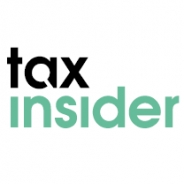
Sarah Bradford of Tax Insider gives useful advice on the best choice of accounting date for an unincorporated business.
Introduction
The law allows a business to choose its accounting date each year. Most businesses use the tax year (i.e., 6 April to 5 April) for their accounting year too, although some people find it convenient to use 31 March as the end date for their business year (known as fiscal accounting). Under the 'current year basis', the taxable profit for a particular tax year is determined by the accounts that end in that year. So, for 2012/13 tax, accounting dates will vary between 6 April 2012 and 5 April 2013.
So What is the Best Date to Choose?
In some cases the nature of the trade will dictate the most appropriate accounting date, but as is often the case with tax matters there will be no easy answer - it will depend on the particular circumstances of the business. There are, however, various considerations:
Fluctuating Profits
If profits are relatively consistent year-on-year, the accounting date will not affect the profit charged to tax for each year. However, where profits show a trend, is may be beneficial to choose an accounting date early in the tax year if profits are rising, and late in the year if profits are falling.
Overlap Relief
The ‘current year tax basis’ used in the UK is designed so that, over the life of a business, tax will be paid on the cumulative profits of the business. However, for businesses using a date other than the tax year, there will be some element of double counting, or overlap, in the first full tax year. The amount of overlap will be held in reserve for use when the business ceases (or on an interim change of accounting date). One concern is that, because of inflation, overlap relief will be worth less in future years than it is at present.
The converse of the overlap situation is the 'bunching' effect of profits when a business ceases. Taxable profits for the final year will be based on profits from the accounting date in the previous tax year to the date of cessation. This means that the earlier in the tax year the accounting date falls, the longer the period of account relating to the final assessment. So, a cessation date of, say, 31 December means that the final tax assessment will be based on a period varying in length between 9 months (5 April accounting date) and 21 months (6 April accounting date). This effect may be lessened to some extent by overlap relief.
Partners are each deemed for tax to have an individual business so the points already mentioned for new businesses and those ceasing apply equally to partners joining or leaving a continuing partnership.
Other Factors
In evaluating the advantages and disadvantages of a particular accounting date there are a number of factors to be considered, including:
- changes in interest rates;
- the effects of inflation;
- changes in tax rates; and
- changes to the tax system.
Since it is difficult to predict what may happen in the future, not surprisingly, businesses tend to be swayed by the short-term advantages.
Practical Tip
Each year the date for the first payment on account of tax (due on 31 January) falls over two months before an accounting date of 5 April, but nearly ten months after an accounting date of 6 April. So, with an accounting date later in the tax year, where profits are falling, too much tax on account may be paid. (Although these may be reduced). This will have an impact on the cashflow of the business and needs to be taken into account when choosing an accounting date.



Please register or log in to add comments.
There are not comments added